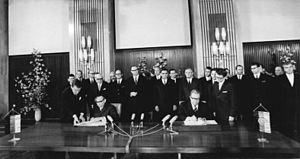BRD is an unofficial abbreviation for the Federal Republic of Germany, informally known in English as West Germany until 1990, and just Germany since reunification. It was occasionally used in the Federal Republic itself during the early Cold War; it was commonly used between 1968 and 1990 by the ruling party of the German Democratic Republic, resulting in a strong deprecation of its use in West Germany. The East German regime had previously used the term "German Federal Republic", which it abbreviated as "DBR", to refer to West Germany. The most widely used abbreviation for West Germany in the country itself was its ISO 3166-1 alpha-2 country code "DE", which has remained the country code of reunified Germany.
The Basic Treaty is the shorthand name for the Treaty concerning the basis of relations between the Federal Republic of Germany and the German Democratic Republic. The Federal Republic of Germany and German Democratic Republic (GDR) recognized each other as sovereign states for the first time, an abandonment of West Germany's Hallstein Doctrine in favor of Ostpolitik.

Rundfunk der DDR was the collective designation for radio broadcasting organized by the State Broadcasting Committee in the German Democratic Republic (GDR) until German reunification in 1990.

The Velodrom (velodrome) is an indoor track cycling arena, in the Prenzlauer Berg locality of Berlin, Germany. Holding up to 12,000 people, it was also Berlin's largest concert venue, until the opening of O2 World in 2008.

The new states of Germany are the five re-established states of the former German Democratic Republic (GDR) that unified with the Federal Republic of Germany (FRG) with its 10 "old states" upon German reunification on 3 October 1990.

Horst Möller is a German contemporary historian. He is Professor of Modern History at the Ludwig Maximilian University of Munich (LMU) and, from 1992 to 2011, Director of the Institut für Zeitgeschichte.

The United Arab Emirates and Germany established relations in May 1972. The U.A.E. has an embassy in Berlin and consulate-general in Munich while Germany maintains an embassy in Abu Dhabi and a consulate-general in Dubai. German exports amount to 5.84 billion Euros. German companies significantly contribute to the UAE's ongoing infrastructure projects and play a leading role in the country's alternative energy developments. Consequently, German Business Park, an area designed to house several of the already seven hundred present companies and their logistical needs, is in the midst of construction. There are thousands of expatriate Germans in the United Arab Emirates who have helped maintain connections between the two countries.
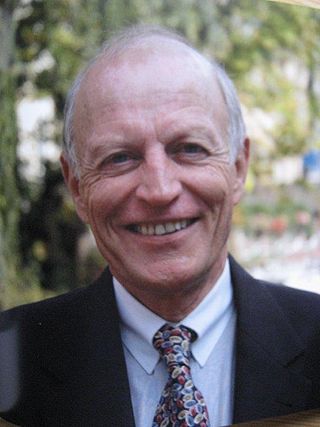
Dieter Mahncke is a scholar of foreign policy and security studies, and Alfried Krupp von Bohlen und Halbach Professor Emeritus of European Foreign Policy and Security Studies at the College of Europe. He is the author of books and articles on European security, arms control, German foreign policy, Berlin, US-European relations and South Africa.

Arzu Toker is a German-speaking writer, journalist, publicist and translator of Turkish descent.
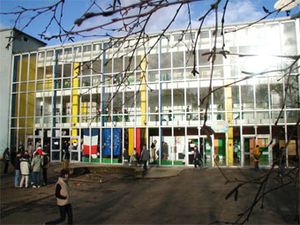
There are five French-German secondary schools known in German as Deutsch-Französisches Gymnasium (DFG) and in French as lycée franco-allemand (LFA). DFG/LFAs are highly selective schools of excellence. Their teachers are paid by the French and German states, and tuition is free of charge.
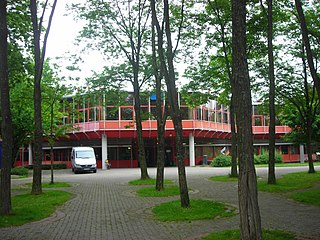
The DFG / LFA Freiburg is a DFG/LFA, a public French-German secondary school in Freiburg im Breisgau, Germany. It offers free education from grades 5 through 12.
The Taipei Representative Office in the Federal Republic of Germany; represents the interests of Taiwan in Germany in the absence of formal diplomatic relations, functioning as a de facto embassy.
Christa Schmidt is a retired German politician (CDU). She served as a minister in the last government of East Germany. She had built an earlier career as a teacher and educationalist.
Bertram Wieczorek is a German physician and former politician (CDU).
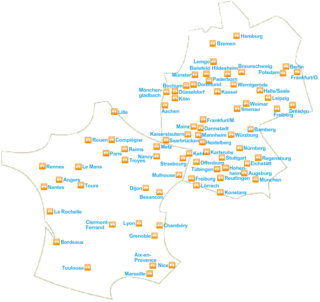
The Franco-German University is an international organisation of universities from Germany and France with the purpose of facilitating international cooperation in higher education. The FGU is not a university in its own right, but rather enables students to study at multiple universities in both countries in a Franco-German course of study, leading to a double degree.

State Commissioner was the title for the provisional heads of government of the New states of Germany shortly after reunification.

Germany–Morocco relations date back to the 19th century. The German Foreign Office describes Morocco as a "central partner of the European Union and Germany in North Africa," and Germany is an important trading partner for Morocco. In the past, however, relations have not always been entirely free of tension.

Inner German relations, also known as the FRG-GDR relations, East Germany-West Germanyrelations or German-German relations, were the political, diplomatic, economic, cultural and personal contacts between the two countries; Federal Republic of Germany and German Democratic Republic, at the period of the official West-East division in the German history from the founding of East Germany on 7 October 1949 to Germany's reunification on 3 October 1990.

Germany–Niger relations focus primarily on cooperation in development, security, and migration policy. Since 2016, bilateral relations have been significantly intensified, with several state visits at the highest level.

As a country with traditionally strong contacts in the Arab world, Germany enjoys a good relationship with Kuwait. Among the EU states, Germany is Kuwait's most important trading partner.
